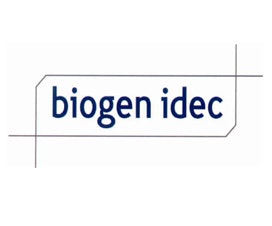After a year-long dream run, Biogen Idec Inc. (NASDAQ:BIIB) lost 5.25% in the week ended Friday, June 7. The drop would have been greater had the stock not recovered in the last two days of the week. Should investors see the current drop in stock price as an opportunity or a value trap?
2 things that went wrong
Biogen Idec Inc. (NASDAQ:BIIB) offers drugs for various forms of MS and its latest MS drug, Tecfidera (dimethyl fumarate), was approved by the FDA in March 2013. For a moment there seemed to be nothing that could go wrong with Biogen Idec Inc. (NASDAQ:BIIB). However, the stock plunged last week after Eric Schmidt, an analyst from Cowen, pointed out a flaw that the prescription sales data of Tecfidera may have been counted twice for patients who were prescribed a new dose. The fact that the company had voluntarily asked for a delay in approval of Tecfidera by the European Medicine Agency (EMA) dealt another blow that pushed the stock down.
The company’s rationale for the delay is evidently for securing regulatory data protection (RDP) so as to avoid entry of a generic version till 2025 – in absence of RDP, generic versions may appear as early as 2019. Regardless, the delay indicated disagreement between the company and the EMA over the level of protection to be granted to Tecfidera.
The bone of contention for not granting a new active substance status to Tecfidera is Fumaderm, a compounded form of dimethyl fumarate – which is also the active ingredient in Tecfidera. Fumaderm is already approved in Germany as treatment for psoriasis. Whether Tecfidera gets patent protection for six or ten years depends largely on how successful Biogen Idec Inc. (NASDAQ:BIIB) is in its discussions with the European regulatory body.
Biogen’s overall performance
Biogen Idec Inc. (NASDAQ:BIIB) is a leading player in the MS market. Its other MS drugs have been contributing to the majority of its revenue – $1.42 billion for the most recent quarter ended March 30. Avonex (interferon beta-1a) contributed $736 million, Tysabri (natalizumab), $275 million and Rituxan (rituximab), $288 million. This is a significant share in the overall MS market in the U.S., which is estimated to be in the range of $10-15 billion.
The European approval is important for Tecfidera as almost 40% of the demand is expected to come from there. Considering the speed with which Tecfidera has been able to capture the U.S. market, it can be said for sure that it will not leave any stone unturned to protect revenues from Europe. The ray of hope is that Fumaderm and Tecfidera are not identical but “chemical cousins.”
However, if worst comes to worst, even a six-year protection is not a big negative considering the cost advantage of manufacturing Tecfidera. The NF-κB inhibitor dimethyl fumarate is easily available and the manufacturing cost is believed to be pretty cheap. Biogen Idec Inc. (NASDAQ:BIIB) is getting a hefty premium for being the first to develop the drug for the relapsed multiple sclerosis indication.
Competition
Biogen competes primarily with Novartis AG (ADR) (NYSE:NVS)’s Gilenya and Sanofi SA (ADR) (NYSE:SNY)’s Aubagio.
Gilenya (Fingolimod) is an immunosuppressive drug and the first once-daily oral pill for reducing attacks of MS and short-term disability. Gilenya took seven years to develop and has been in use for the last two years and generated revenues of $283 million in the second quarter of 2012.
Novartis AG (ADR) (NYSE:NVS) recently launched an ad campaign targeted at young MS patients. This is seen as the company’s effort to find a new edge in the MS market and take on Biogen’s Tecfidera and Sanofi SA (ADR) (NYSE:SNY)’s Aubagio. Whereas Gilenya is priced at $60,000 per patient per year, Sanofi SA (ADR) (NYSE:SNY)’s Aubagio carries a tag of $45,000 and Tecfidera, $54,900.





